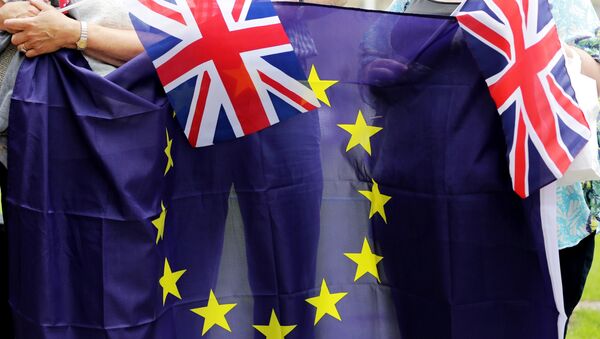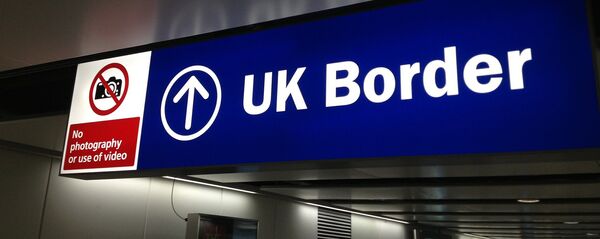While there is significantly less support for free movement of labor in the UK than in the EU, the UK is nevertheless unlikely to pull out of the EU's single market, Professor Thom Brooks, head of Durham University's Law School and author of the book "Becoming British: UK Citizenship Examined," told Radio Sputnik.
"I daresay that in the EU, there seems to be very strong support for what's called the free movement of EU citizens, (but) in Britain there isn't strong support for free movement of anybody it seems, other than British nationals."
On June 23, 52 percent of UK voters voted to leave the EU, in a referendum on the country's membership in the bloc. Despite promising to invoke Article 50 of the EU's Lisbon Treaty, which sets out how a country might leave, the UK government has so far failed to do so.
Professor Brooks said that he is "very skeptical" about the prospect of Brexit becoming a reality.
"I think it very unlikely that Britain will want to not have access to the single market. That is to say, I think it is unlikely that the government will choose that British goods will cost more because of tariffs on them, than go for tariff-free trade with Britain's largest trading partner."
"The more I see the government drag its feet on this issue, the less I think they really are going to trigger Brexit. I think they are going to put together some raft of proposals and call that a Brexit, but it won't be a full withdrawal from Europe after all," Brooks said.
Brooks, who is originally from the US, added that during the EU referendum campaign, supporters of the campaign to leave the bloc promised to impose a points-based migration system in order to restrict immigration.
The Brexit referendum "seems to have been largely a kind of intellectual exercise, the decision hasn't really come to bite anyone yet. I think that Europe will proceed to do better out of this than Britain will. I think Britain is going to face a bit of shock."




